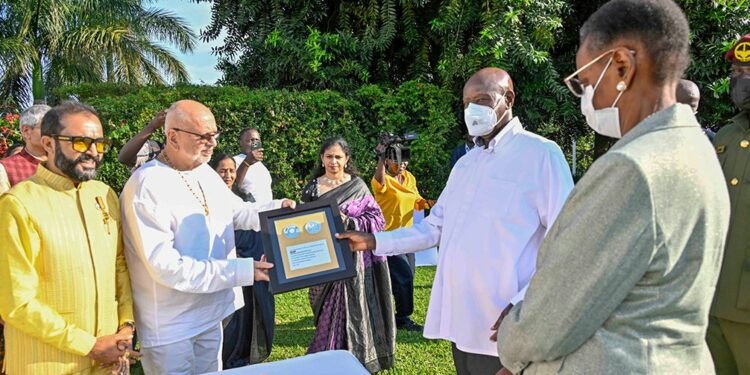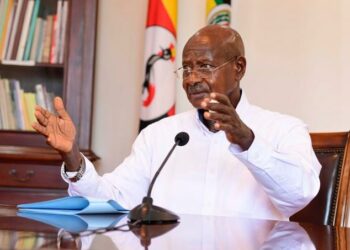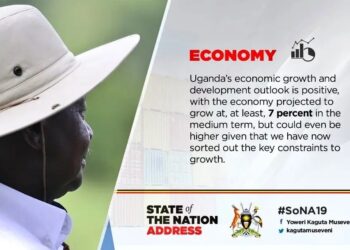Entebbe, Uganda – In a landmark gesture toward national unity and economic reconciliation, President Yoweri Museveni has committed to consulting on the formal recognition of Uganda’s Indian diaspora as one of the country’s official tribes. The pledge, delivered during a joyous Diwali celebration at State House Entebbe, signals a deepening integration of the community that has become a cornerstone of Uganda’s post-colonial revival.
The announcement came on October 26, as Museveni and First Lady Janet Museveni hosted hundreds of Indian-Ugandans and business luminaries under the glow of traditional lamps and fireworks. Among the distinguished guests was Sudhir Ruparelia, the tycoon behind the Ruparelia Group, whose presence underscored the event’s blend of cultural festivity and policy ambition. Ruparelia, whose empire spans hotels, banking, and real estate, was hailed by Indian Association of Uganda chairperson Paresh Mehta as a symbol of resilience: “From arriving with just $25,000, Sudhir has built a $1.6 billion legacy under the NRM’s enabling environment.”
Museveni’s words cut through the celebratory air like a clarion call. “I will consult further and see how we can formally recognize Indians as one of the tribes of Uganda,” he declared, eliciting thunderous applause from the assembled crowd. The president framed the proposal as a logical extension of Uganda’s multicultural ethos, noting, “All Ugandan groups originated from elsewhere—this simplifies our discussions on citizenship and belonging.”
The move revives a poignant chapter in Uganda’s history, one scarred by the 1972 expulsion of some 80,000 Asians—predominantly Indians—under dictator Idi Amin’s brutal “economic war.” Families were uprooted overnight, their properties seized in a wave of xenophobia that shattered communities and stalled the economy. Many fled to India, the UK, and Canada, carrying tales of loss that echoed globally.
Dawn broke anew in 1986 with Museveni’s National Resistance Movement (NRM) victory. He extended invitations for the exiles to return, promising a fresh start. They answered in droves, channeling entrepreneurial zeal into rebuilding. Today, Uganda’s Indian population hovers around 35,000, a vibrant force generating over 65% of the nation’s income tax revenue via investments topping $1 billion. Bilateral trade with India exceeds $1.2 billion yearly, fueled by industrial powerhouses like the Ruparelias, Madhvanis, and Mehtas, who drive sectors from manufacturing to philanthropy.
Museveni lavished praise on their “entrepreneurial spirit,” crediting it with spawning jobs, a burgeoning middle class, and vital revenue streams for public services like education. Beyond business, the community has poured resources into humanitarian causes: funding life-saving heart surgeries for children and donating 65,000 units of blood to national health drives. “This is not just about economics—it’s about heart,” the president added.
Yet, the pledge has ignited a spectrum of reactions, mirroring Uganda’s complex social tapestry. On social media platforms like X (formerly Twitter), jubilation mingled with caution. Supporters hailed it as a “fitting tribute to unsung builders,” with hashtags like #IndianUgandans and #TribeForAll trending locally. One user posted, “Finally, equality in ink and spirit—Diwali lights the way for all!”
Skeptics, however, voiced deeper reservations. Fears of historical echoes—potential future expulsions or cultural dilution—surfaced in threads questioning intermarriage norms and land ownership. “Ugandans at home could achieve the same if given half the chances,” one critic argued, echoing sentiments that portray some Indian tycoons as “proxies for offshore assets.” Others worried the symbolic step might sideline affirmative action for indigenous groups, already strained by economic disparities.
Scholars and analysts offered measured takes. Dr. Aisha Nansubuga, a sociologist at Makerere University, called it “a bold stroke for inclusion, but implementation will test Museveni’s legacy.” If approved, the Indians would join Uganda’s 56 recognized tribes, unlocking access to cultural preservation funds, parliamentary quotas, and affirmative policies—benefits long reserved for ethnic kin.
As consultations unfold—likely involving parliament, cultural ministries, and community leaders—the pledge embodies Museveni’s enduring vision: a prosperous Uganda woven from diverse threads. In a nation where unity has often been forged in fire, this Diwali spark could illuminate a more equitable dawn. For now, the lamps of State House flicker with promise, waiting for the next chapter to unfold.
Do you have a story in your community or an opinion to share with us: Email us at editorial@watchdoguganda.com














